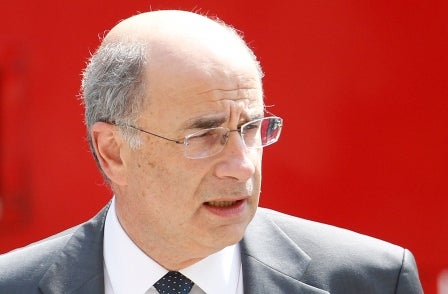
Brian Leveson has defended his inquiry into the press, telling an interviewer: "I just did what I was supposed to do."
Journalist Sandy Rashty described Leveson (pictured, Reuters) as "anxious" during at 90-minute interview "punctured with hesitation, caution and a three-minute break while he reconsiders whether he should have agreed to the interview in the first place".
In the write-up, Rashty describes the journalism industry as being still "wounded" by the inquiry and cited "Leveson’s Illiberal Legacy" report, published last month, which condemned his regulation recommendations.
Asked about the repercussions of his report, Leveson said: "What you are doing is persuading me that I should have never given this interview. I do not want to increase my profile."
When Rashty persisted, he said: “I simply cannot talk about regulation of the press because, if I do, I dump myself into the middle of a political debate which is going on to this day…
"There is supposed to be a second limb to the Inquiry which can only start when all the criminal cases have been concluded. [The report] could not go into who did what to whom because there were all sorts of prosecutions pending.”
Rashty's write up then says: "You mean people like Rebekah Brooks (the former editor of the Sun and News of the World), I ask? What, I wonder, does he think of her resurrection as chief executive of News UK, the company she left in controversial circumstances, a company that was found to have used widespread phone-hacking — a practice which she was cleared in court of ever sanctioning or knowing about."
Leveson responded: ‘‘Tell me about it."
Rashty said these "muttered words" were "seemingly laced with sarcasm".
He added: “I know it has been three years since my findings were published but journalists are still being investigated. It is up to the government now. There will come a time when someone has to decide what will happen with the second limb of the Inquiry.
“I’ve done a report, it’s there. What has happened since its publication is for others to determine — not for me. It’s inappropriate for me as a serving judge to get involved in those kinds of discussions. I have to be very careful, because the one thing I cannot talk about is politics. I will not talk about issues of policies and law which might come up to me for decision, because if I did comment, someone would say to me: ‘Well you have got a pre-judged view’. There is a risk that by expressing a view on policy, judges disqualify themselves from a later challenge to that policy.”
Email pged@pressgazette.co.uk to point out mistakes, provide story tips or send in a letter for publication on our "Letters Page" blog
